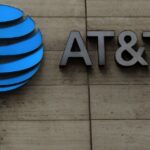
The harsher voices on the left decry “the unprecedented level of corporate greed that we are now seeing,” while at least one presidential candidate on the right tells companies to bend the knee and resist “corporate wokeness.” With political pressures increasing, brand boycotts multiplying, and the 2024 campaign bearing down on the board room like a bad dream, what are sensible CEOs from left, right, and center to do?
Depolarize, comes the answer from a growing cast of civic entrepreneurs stirred to action. These leaders believe that no matter the corporate culture, executive ideology, or tolerance for issue engagement, more businesses can add depolarization skills to their toolkits. This isn’t a panacea, but companies can constructively vent off competing pressures for public issue engagement by modeling cross-partisanship and goodwill.
Having worked for conservative governors and presidents who liked winning and governing, I’ve grown resistant to the dumbed-down divisiveness that infects both parties. The Republicans of my time on campaigns and in government, like their Democratic counterparts, had resentments and tough methods, but the GOP came to possess what Jonathan V. Last has called “an out-group antipathy so intense that it overrode all of their affirmative preferences.”
Increasingly, leaders from the broad American center believe curiosity and careful listening can help them and their institutions navigate a fraught society.
Thirty military veterans from both parties are today members of Congress after gaining support in from With Honor. Each of these men and women agreed to–and are held to–a cross-partisan pledge of civility and habits of legislative action.
Utah governor Spencer Cox launched a two-party effort along these lines at the National Governors Association. “Healthy disagreement means not assuming that the other side is deluded, misinformed, or actively trying to overthrow America,” he said.
Better, healthier disagreement isn’t just idealism, it’s an I do-ism.
Earlier this month, 700 people assembled in Gettysburg, Pennsylvania–where Lincoln called across the ages for our better angels to rise–for the Braver Angels national convention: nearly half Red, similarly Blue, plus a clutch of independents.
What I witnessed there gave de Tocqueville reason to smile and Perot to cackle: the kind of cleansing storm needed to depolarize America. Braver Angels is a 6-year-old “civic renewal movement” with a goal “not to change people’s views of issues, but to change their views of each other.” As co-founder David Blankenhorn recently said, “American elites today are too implicated in the structures and mindsets of polarization to do much to change it, unless they are awakened and guided by ‘We the People.’”
‘We’re not as divided as we’ve been led to believe’
But the division we all worry about is not as great as we think, according to nonprofits More in Common and Starts With Us. Their efforts to define and unmask “affective polarization” could fuel business initiatives among stakeholders. Consumer brands, especially, must understand where the fault lines are for their audiences.
The information climate has author Jonathan Rauch decrying interwoven polarization and propaganda: “If you’re working on one, you’re working on the other.” The new movements for civic reform, he says, fight propaganda by reducing false polarization, “un-chilling” conversation, building trust, and giving hope. Seattle journalist Monica Guzman, a devoted liberal and daughter of two Mexican-American Trump voters, offers a personal and hopeful skills taxonomy for difficult conversations in her book, I Never Thought of It That Way.
Trusted information is one of five bipartisan pillars More Perfect is built upon, joining civics education, national service, depolarization, and reliable elections. This organization is active with corporations, surely driven by a pressing timetable: to prepare the country for the 250th anniversary of the Declaration of Independence in 2026.
Former presidents George W. Bush (through his policy institute) and Barack Obama recently hailed the nonpartisan, disinformation-fighting News Literacy Project, which offers innovative toolkits for school-age and adult news consumers.
To the H.R. executives, general counsels, and corporate communicators of previous eras, engaging in depolarization would have seemed unthinkable. Some companies are smartly rethinking their issues strategy to develop points of view systematically, measure stakeholders’ opinions with greater precision, and manage risk and opportunities more proactively.
But a polarized country and its corporate leaders can’t keep doing things the same way and expect different results.
To borrow Blankenhorn’s framing, one can be awakened without being “woke” and great American companies always want to be responsive to ‘the people’ or at least, their people–from employees to customers to shareholders. And opinion polls show they want something more from corporations.
What they want is not always clear. But it is clear in my work that at least three kinds of C-suites confront the question: those who engage publicly on difficult issues, those who engage quietly with their non-public audiences, and those who don’t want any involvement besides carefully curated CSR initiatives.
I’d argue that all of these can support civic repair, careful listening, and the renewal of our founding principles. Their voices, dollars, and demonstrations can make a difference.
Blankenhorn told attendees the single thing he hears most after an event is, “We’re not as divided as we’ve been led to believe.”
And for that reason, we can believe, as Lincoln did, that this nation “can long endure.”
Tucker Eskew was deputy assistant to President George W. Bush and is a partner at the bipartisan strategic advisory and crisis communications firm Vianovo. He serves on the board of directors of the News Literacy Project and the advisory council of With Honor.
The opinions expressed in Fortune.com commentary pieces are solely the views of their authors and do not necessarily reflect the opinions and beliefs of Fortune.








